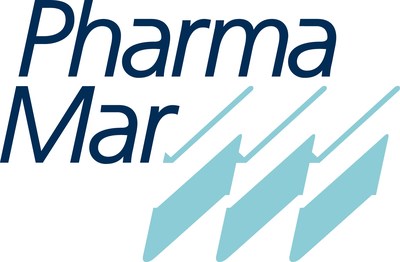Jazz Pharmaceuticals plc, along with its partner, PharmaMar, announce results from the ATLANTIS Phase 3 multicenter, randomized, controlled study evaluating Zepzelca™ in combination with doxorubicin versus physician’s choice of topotecan or cyclophosphamide/doxorubicin/vincristine for adult patients with small cell lung cancer whose disease progressed following one prior platinum-containing line.
DUBLIN, Dec. 3, 2020 /PRNewswire/ -- Jazz Pharmaceuticals plc (Nasdaq: JAZZ), along with its partner, PharmaMar (MSE: PHM), today announce results from the ATLANTIS Phase 3 multicenter, randomized, controlled study evaluating Zepzelca™ (lurbinectedin) in combination with doxorubicin versus physician’s choice of topotecan or cyclophosphamide/doxorubicin/vincristine (CAV) for adult patients with small cell lung cancer (SCLC) whose disease progressed following one prior platinum-containing line. Patients received lurbinectedin at 2.0mg/m2 in the combination arm, which is lower than the FDA approved dose of Zepzelca at 3.2mg/m2.
The study did not meet the pre-specified criteria of significance for the primary endpoint of overall survival (OS) in the intent-to-treat (ITT) population comparing lurbinectedin in combination with doxorubicin to the control arm, though there was no adverse effect on OS with the experimental arm. Based on the study design, no additional hypotheses were formally tested. Importantly, key secondary and subgroup analyses favored the lurbinectedin combination arm. Lurbinectedin monotherapy was not tested in ATLANTIS.
The safety data in this study was consistent with the known safety profile of lurbinectedin monotherapy with no new safety signals observed. The experimental arm showed favorable safety and tolerability with regard to Grade-3 or greater drug related adverse events (AEs), deaths due to AEs, hematologic toxicity, dose reductions and treatment discontinuations due to AEs, compared to the control arm.
“Bringing Zepzelca to the U.S. market earlier this year alongside our partner, PharmaMar, was an important advance for adults with metastatic SCLC, an aggressive disease with a historically poor prognosis,” said Robert Iannone M.D., M.S.C.E., executive vice president, research and development of Jazz Pharmaceuticals. “While the combination of lurbinectedin and doxorubicin did not achieve the primary endpoint in this study, the overall results support the activity and tolerability of lurbinectedin in this line of therapy. We look forward to the further development of lurbinectedin in SCLC and other tumors, both as monotherapy and in combination.”
“We remain committed to improving outcomes for patients with metastatic small cell lung cancer where there is a high unmet medical need; we continue to evaluate the safety and efficacy of lurbinectedin in SCLC and other tumors. The drug’s activity in this disease and setting has been reinforced in this trial,” said Luis Mora, managing director, oncology business unit, PharmaMar. “We extend our gratitude to the patients, physicians and their staff as well as caregivers who participated in this clinical study.”
“Historically, patients with relapsed SCLC often face difficult odds due to the aggressive nature of the disease and they have had very limited treatment options. As a physician treating patients with SCLC, I’m confident in lurbinectedin as an effective new option in this traditionally challenging therapeutic area,” Alberto Chiappori, MD, senior member of oncology and medicine for the Department of Thoracic Oncology at the H. Lee Moffitt Cancer Center and Research Institute and ATLANTIS Phase 3 study investigator.
Results will be discussed with the appropriate regulatory authorities and will be presented at a future medical meeting.
The U.S. Food and Drug Administration (FDA) approved Zepzelca under accelerated approval in June 2020 for the treatment of adult patients with metastatic SCLC with disease progression on or after platinum-based chemotherapy. The approval is based on ORR and duration of response demonstrated in an open-label, monotherapy clinical study. The companies will provide the ATLANTIS data to FDA and look forward to working with the agency to determine the confirmatory data that is needed for full approval.
ATLANTIS Phase 3 Study Design
The ATLANTIS Phase 3 study enrolled 613 patients at 154 sites primarily in the U.S., Canada, Latin America and Western Europe from September 2016 through July 2018. Patients enrolled were ≥18 years with histologically or cytologically confirmed diagnosis of limited or extensive stage SCLC, had failed one prior platinum-containing regimen, and had a chemotherapy-free interval (CTFI, time from the last dose of first-line chemotherapy to the occurrence of progressive disease) ≥ 30 days. Patient inclusion criteria included small-cell carcinoma of unknown primary site with or without neuroendocrine features confirmed in histology test(s) performed on metastatic lesion(s) are eligible, if Ki-67/MIB-1 is expressed in >50 percent of tumor cells.
In the trial, patients were randomized in a 1:1 ratio to receive lurbinectedin in combination with doxorubicin or physician’s choice of topotecan OR cyclophosphamide/doxor ubicin/vincristine (CAV). The primary endpoint was overall survival. The secondary endpoints were 1) the difference in OS for patients in the lurbinectedin/doxorubicin arm compared to patients treated with CAV; 2) OS and progression free survival (PFS) in patients with or without CNS involvement; 3) PFS by independent review committee (IRC); 4) antitumor activity defined by objective response rate (ORR) per IRC; and 5) duration of response per IRC.
The study sample was stratified by the following factors: CTFI (chemotherapy free interval); ECOG performance status (0 vs. 1-2); CNS involvement vs. no involvement; prior immunotherapy against either programmed cell death protein-1 (PD-1) or programmed death ligand-1 (PD-L1); and investigator preference of topotecan and CAV.
About Zepzelca™ (lurbinectedin)
Zepzelca is an alkylating drug that binds guanine residues within DNA. This triggers a cascade of events that can affect the activity of DNA binding proteins, including some transcription factors, and DNA repair pathways, resulting in disruption of the cell cycle and eventual cell death.1
Zepzelca for injection 4 mg is a prescription medicine used to treat adults with a kind of lung cancer called small cell lung cancer that has spread to other parts of the body (metastatic) and who have received treatment with chemotherapy that contains platinum, and it did not work or is no longer working. Zepzelca is approved based on response rate and how long the response lasted. Additional studies will further evaluate the benefit of Zepzelca for this use.
Important Safety Information
Before receiving ZEPZELCA, tell your healthcare provider about all of your medical conditions, including if you:
- have liver or kidney problems.
- are pregnant or plan to become pregnant. ZEPZELCA can harm your unborn baby.
Females who are able to become pregnant:- Your healthcare provider should do a pregnancy test before you start treatment with ZEPZELCA.
- You should use effective birth control (contraception) during treatment with and for 6 months after your final dose of ZEPZELCA.
- Tell your healthcare provider right away if you become pregnant or think that you are pregnant during treatment with ZEPZELCA.
Males with female partners who are able to become pregnant should use effective birth control during treatment with and for 4 months after your final dose of ZEPZELCA.
- are breastfeeding or plan to breastfeed. It is not known if ZEPZELCA passes into your breastmilk. Do not breastfeed during treatment with ZEPZELCA and for 2 weeks after your final dose of ZEPZELCA. Talk to your healthcare provider about the best way to feed your baby during treatment with ZEPZELCA.
Tell your healthcare provider about all the medicines you take, including prescription and over-the-counter medicines, vitamins, and herbal supplements. Certain other medicines may affect how ZEPZELCA works.
What should I avoid while using ZEPZELCA?
Avoid eating or drinking grapefruit, or products that contain grapefruit juice during treatment with ZEPZELCA.
ZEPZELCA can cause serious side effects, including:
- Low blood cell counts. Low blood counts including low neutrophil counts (neutropenia) and low platelet counts (thrombocytopenia) are common with ZEPZELCA, and can also be severe. Some people with low white blood cell counts may get fever, or an infection throughout the body (sepsis), that can cause death. Your healthcare provider should do blood tests before you receive each treatment with ZEPZELCA to check your blood cell counts.
Tell your healthcare provider right away if you develop:- fever or any other signs of infection
- unusual bruising or bleeding
- tiredness
- pale colored skin
- Liver problems. Increased liver function tests are common with ZEPZELCA, and can also be severe. Your healthcare provider should do blood tests to check your liver function before you start and during treatment with ZEPZELCA.
Tell your healthcare provider right away if you develop symptoms of liver problems including:- loss of appetite
- nausea or vomiting
- pain on the right side of your stomach area (abdomen)
Your healthcare provider may temporarily stop treatment, lower your dose, or permanently stop ZEPZELCA if you develop low blood cell counts or liver problems during treatment with ZEPZELCA.
The most common side effects of ZEPZELCA include:
- tiredness
- low white and red blood cell counts
- increased kidney function blood test (creatinine)
- increased liver function blood tests
- increased blood sugar (glucose)
- nausea
- decreased appetite
- muscle and joint (musculoskeletal) pain
- low level of albumin in the blood
- constipation
- trouble breathing
- low levels of sodium and magnesium in the blood
- vomiting
- cough
- diarrhea
These are not all of the possible side effects of ZEPZELCA.
Call your doctor for medical advice about side effects. You are encouraged to report negative side effects of prescription drugs to the FDA. Visit www.fda.gov/medwatch or call 1-800-FDA-1088. You may also report side effects to Jazz Pharmaceuticals at 1-800-520-5568.
More information about Zepzelca, including Full Prescribing Information and Patient Information, is available here.
ZEPZELCA is a trademark of PharmaMar, S.A. used by Jazz Pharmaceuticals under license.
About Jazz Pharmaceuticals
Jazz Pharmaceuticals plc (Nasdaq: JAZZ) is a global biopharmaceutical company dedicated to developing and commercializing life-changing medicines that transform the lives of patients with serious diseases - often with limited or no options. We have a diverse portfolio of marketed medicines and novel product candidates, from early- to late-stage development, in key therapeutic areas. Our focus is in neuroscience, including sleep and movement disorders, and in oncology, including hematologic malignancies and solid tumors. We actively explore new options for patients including novel compounds, small molecule advancements, biologics and innovative delivery technologies. Jazz is headquartered in Dublin, Ireland and has employees around the globe, serving patients in more than 90 countries. For more information, please visit www.jazzpharmaceuticals.com and follow @JazzPharma on Twitter.
About PharmaMar
Headquartered in Madrid, PharmaMar is a biopharmaceutical company, focused on oncology and committed to research and development which takes its inspiration from the sea to discover molecules with antitumor activity. It is a company that seeks innovative products to provide healthcare professionals with new tools to treat cancer. Its commitment to patients and to research has made it one of the world leaders in the discovery of antitumor drugs of marine origin.
PharmaMar has a pipeline of drug candidates and a robust R&D oncology program. It develops and commercializes Yondelis® in Europe and has other clinical-stage programs under development for several types of solid cancers: lurbinectedin (PM1183), PM184 and PM14. With subsidiaries in Germany, Italy, France, Switzerland, Belgium, Austria and the United States. PharmaMar wholly owns other companies: GENOMICA, a molecular diagnostics company; Sylentis, dedicated to researching therapeutic applications of gene silencing (RNAi). To learn more about PharmaMar, please visit us at www.pharmamar.com.
“Safe Harbor” Statement under the Private Securities Litigation Reform Act of 1995
This press release contains forward-looking statements, including, but not limited to, statements related to engaging with the appropriate regulatory agencies, including providing the ATLANTIS data to FDA and working with the agency to determine the confirmatory data that is needed for full approval of lurbinectedin; the further development of lurbinectedin in SCLC and other tumors, both as monotherapy and in combination; the company’s belief that the overall results of ATLANTIS support the activity and tolerability of lurbinectedin in adults with metastatic SCLC; and other statements that are not historical facts. These forward-looking statements are based on Jazz Pharmaceuticals’ current plans, objectives, estimates, expectations and intentions and inherently involve significant risks and uncertainties. Actual results and the timing of events could differ materially from those anticipated in such forward-looking statements as a result of these risks and uncertainties, which include, without limitation, risks and uncertainties associated with pharmaceutical product development, including clinical data read-outs; the time-consuming and uncertain regulatory approval process, including the risk that FDA may not grant full approval to lurbinectedin; and other risks and uncertainties affecting Jazz Pharmaceuticals and its development programs, including those described from time to time under the caption “Risk Factors” and elsewhere in Jazz Pharmaceuticals plc’s Securities and Exchange Commission filings and reports (Commission File No. 001-33500), including Jazz Pharmaceuticals’ Quarterly Report on Form 10-Q for the quarter ended September 30, 2020 and future filings and reports by Jazz Pharmaceuticals. Other risks and uncertainties of which Jazz Pharmaceuticals is not currently aware may also affect Jazz Pharmaceuticals’ forward-looking statements and may cause actual results and the timing of events to differ materially from those anticipated. The forward-looking statements herein are made only as of the date hereof or as of the dates indicated in the forward-looking statements, even if they are subsequently made available by Jazz Pharmaceuticals on its website or otherwise. Jazz Pharmaceuticals undertakes no obligation to update or supplement any forward-looking statements to reflect actual results, new information, future events, changes in its expectations or other circumstances that exist after the date as of which the forward-looking statements were made.
References:
1. ZEPZELCA (lurbinectedin) Prescribing Information. Palo Alto, CA: Jazz Pharmaceuticals, Inc.
Jazz Pharmaceuticals Media and Investor Relations Contact
Media Contact:
Jacqueline Kirby, Vice President, Corporate Affairs & Government Relations
Ireland +353 1 697 2141 U.S. +1 215 867 4910
Investor Contact:
Kathee Littrell, Vice President, Investor Relations
Ireland +353 1 634 7887 U.S. +1 650 496 2717
![]() View original content to download multimedia:http://www.prnewswire.com/news-releases/jazz-pharmaceuticals-and-pharmamar-announce-results-of-atlantis-phase-3-study-evaluating-zepzelca-in-combination-with-doxorubicin-for-patients-with-small-cell-lung-cancer-following-one-prior-platinum-containing-line-301185390.html
View original content to download multimedia:http://www.prnewswire.com/news-releases/jazz-pharmaceuticals-and-pharmamar-announce-results-of-atlantis-phase-3-study-evaluating-zepzelca-in-combination-with-doxorubicin-for-patients-with-small-cell-lung-cancer-following-one-prior-platinum-containing-line-301185390.html
SOURCE Jazz Pharmaceuticals plc
Company Codes: NASDAQ-NMS:JAZZ






